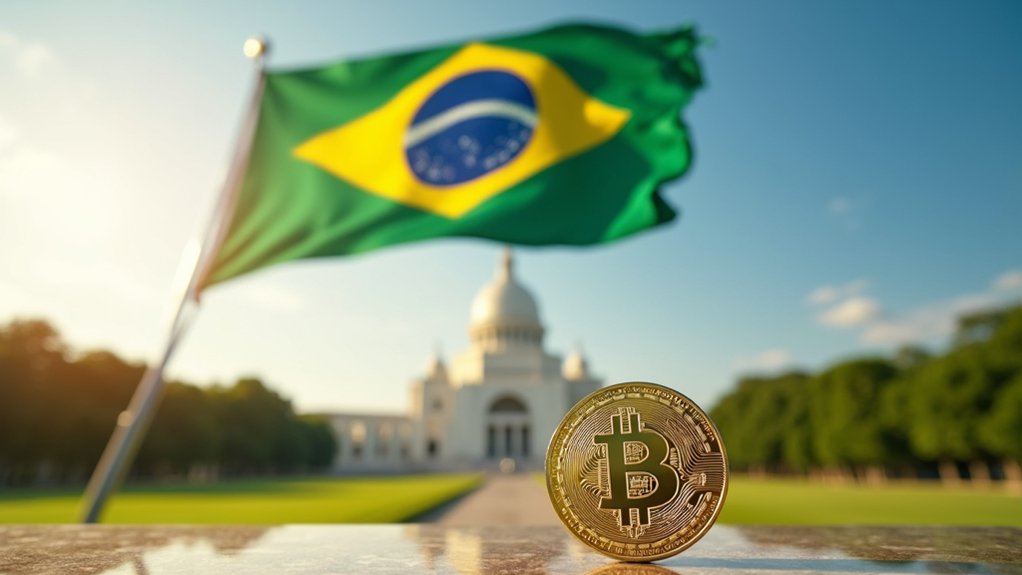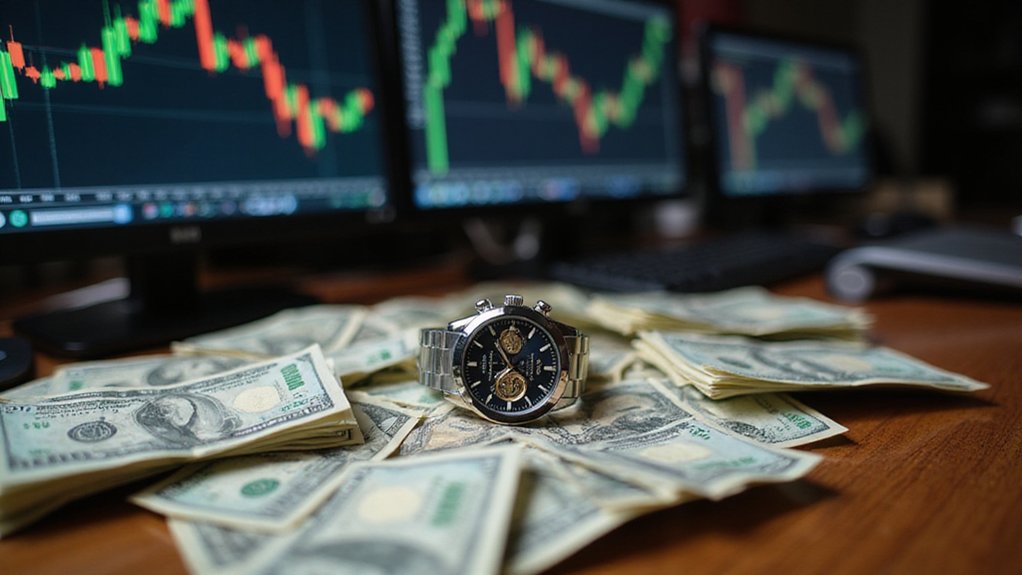Brazil appears poised to leapfrog from monetary orthodoxy into uncharted digital territory, with its Chamber of Deputies scheduling a public hearing for August 20, 2025, to debate Bill 4501/2024—legislation that would allocate up to 5% of the nation’s international reserves (roughly $15-18.5 billion from a $341 billion war chest) into Bitcoin.
Brazil’s $18.5 billion Bitcoin gamble represents the boldest sovereign cryptocurrency experiment since El Salvador’s modest digital currency adoption.
The proposal, introduced by Deputy Eros Biondini in November 2024 and championed by Deputy Luiz Philippe de Orleans e Bragança, would transform Brazil into the world’s largest sovereign Bitcoin holder—a distinction that makes El Salvador’s comparatively modest holdings look quaint.
The initiative follows the U.S. federal government’s 2025 Executive Order on crypto reserves, suggesting contagion effects in institutional adoption that would make epidemiologists envious.
Brazil’s economic rationale centers on hedging against the real’s notorious volatility and persistent inflation—problems that have plagued Latin American economies with clockwork regularity. The diversification strategy aims to shield reserves from geopolitical instability while supporting the nation’s Central Bank Digital Currency “Drex” and blockchain education initiatives, creating what proponents frame as an extensive digital transformation.
The hearing will feature testimony from the Central Bank, Ministry of Finance, and various fintech advocates—a gathering that promises to generate more heat than light given Bitcoin’s propensity for 30% daily price swings. Critics rightfully emphasize the asset’s volatility and potential for spectacular losses, particularly given the timing sensitivity inherent in any $18.5 billion purchase decision.
If approved, Brazil’s allocation would dwarf corporate holdings like MicroStrategy’s 628,791 BTC, representing approximately 4.55% of Bitcoin’s total supply. The market implications are staggering—institutional validation on this scale could either legitimize Bitcoin as a strategic reserve asset or provide a cautionary tale about sovereign wealth management in the digital age. Brazil has already established itself as a regional crypto leader by approving spot cryptocurrency ETFs and launching various investment products, signaling its commitment to digital asset innovation.
The auditing complexities alone should give treasury officials nightmares, while the prospect of explaining Bitcoin losses to Brazilian taxpayers adds political risk to an already volatile equation. The nation’s approach reflects the growing importance of regulatory clarity as global crypto ecosystems mature and governments seek to balance innovation with prudent fiscal management.
Yet the “historic” nature of this debate, as local media characterizes it, reflects Brazil’s willingness to embrace financial innovation despite the inherent uncertainties surrounding cryptocurrency’s role in sovereign reserve management.






